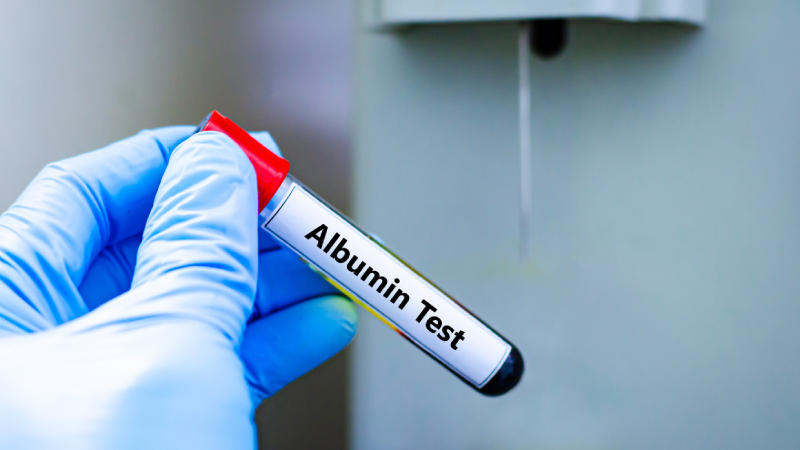Panel Discusses Treatment for Later-Line CRC: Trifluridine/Tipiracil and Regorafenib
By Nilofer Azad, MD, Fatemeh Youssefi, PhD, RN, OCN, Rachel Klein, MSN, CRNP - Last Updated: October 17, 2023A multistakeholder roundtable discussion, moderated by Nilofer Azad, MD, of the Johns Hopkins University Sidney Kimmel Comprehensive Cancer Center, focused on the colorectal cancer treatment, management, and care. Dr. Azad was joined by Rachel Klein, MSN, CRNP, and Fatemeh Youssefi, PhD, RN, OCN.
In the next segment of the roundtable series, the panel discusses later-line treatment for metastatic colorectal cancer and reviews outcomes of the SUNLIGHT clinical trial, which assessed quality of life in patients receiving trifluridine/tipiracil plus bevacizumab.
—
Dr. Azad: I’d like to move into later-line therapy for our colon cancer patients. After patients have had FOLFOX, CAPOX, and/or FOLFIRI, now we’ve got a new regimen with the SUNLIGHT regimen, which is Lonsurf (trifluridine/tipiracil) plus bevacizumab. We also have an FDA-approved agent in regorafenib, and both are approved in the same line, so third-line colorectal cancer, both are reasonable regimens. Fatima, tell me a little bit about your experience with each of these drugs and patients on each of these drugs.
Dr. Youssefi: They are kind of tough on the patients as far as the side effect goes, and I think sometimes patients wanted to receive treatment. They have a cancer that’s growing and it didn’t respond to the first line, second line and however you describe it to the patients. I think, again, it is fair to educate the patients, to put everything out on front, as Rachel kind of alluded to it. That these are the side effects; this is how you have to manage your side effects. If they make a decision to support them through that decision and help them with any side effect they may have, again, going back to any GI side effects, and empower the institution to provide that supportive care if they need it and empower the patients to call the providers when there is a side effect that takes place, basically.
Dr. Azad: Rachel, how about you? What do you educate patients about that they can expect with Lonsurf/bevacizumab as their side effect profile, with regorafenib as their side effect profile?
Ms. Klein: I will say colon cancer patients on the whole, my experience has been that people are very educated. It’s a really incredible advocacy community. There’s a lot of support groups both online and in person, and I think people read a lot and try to understand the data as best they can, whether they’re medical or nonmedical or have experience with understanding statistics. When we get to third-line therapy, I think a lot of people feel discouraged because up until recently, the data has been fairly discouraging. Maybe the overall survival or the overall impact for some of these third-line oral agents hasn’t been as positive or optimistic as they would like them to be. Recently, when we’ve had this addition of bevacizumab with Lonsurf, I think we’ve been very encouraged to find improved overall survival benefit, improved progression-free survival, and importantly in the SUNLIGHT trial, they really included quality of life indications as well, which I think is really important in our cancer community trials.
People generally on Lonsurf plus bevacizumab have done better than with Lonsurf alone and in the prior trials, people on Lonsurf did better than people on placebo. I think we’re building on this, and I think in our practice it’s safe to say that even though both are approved in the third line, we’ve been trending toward this doublet therapy of Lonsurf/bevacizumab as a preferred third-line combination because it does provide increased overall survival benefit without significant increase in toxicity, and I think that’s really important.
Lonsurf is, as pretty much all of our cytotoxic therapies are, based on body surface area in terms of dosing. The standard dosing is 35 mg/m2, and that’s given on a schedule of twice a day for 2 weeks, basically Monday through Friday of 2 weeks out of the month. They get 2 weeks on the medication essentially and 2 weeks off, and then the infusion is given on day 1 and day 15 of each cycle. Patients that are used to coming in every 2 weeks and, as Fatima said, spending 4 or 5 hours in their infusion chair with their nurse or with their best friend or their spouse will often find this a relief that they only have to be in the infusion chair for maybe an hour. The bevacizumab is really not what adds significant toxicity. I will say the Lonsurf, some of the side effects we see would be fatigue. In particular, I tend to find a cumulative fatigue, that they’re okay until the end of that second week or maybe even into the first week off, they’re finding the fatigue in that timeframe. We do see some nausea. It is an oral medication; it’s absorbed in the GI system, so we can counsel on how to take it with food and how to best support them with nausea if that becomes a problem.
We can see diarrhea and probably most significantly, we do see significant neutropenia. We really need to counsel on the importance of monitoring for fevers, monitoring for signs and symptoms of infection, and frequently requiring the addition of a growth factor medication to help them stay on track with their cycles so they’re not having significant delays in starting cycle 2, cycle 3, cycle 4. Again, with open communication and by this point, third-line therapy, they probably have their supportive medication regimens down for the most part. Everything is not new anymore, and a lot of people know what works for them and we just maintain open lines of communication on how we can best support them, make dosing modifications if needed, and hopefully allow them a little bit more flexibility in their life being on an oral therapy that they can travel; they can work. They can do what’s important to them.
Dr. Azad: I have to say, we were early adopters of the SUNLIGHT regimen based on the phase 2 data, even before the phase 3 trial was reported, and I have been so impressed by what I’ve seen in that regimen in the third-line setting. This trial, which randomized patients to Lonsurf plus bevacizumab versus Lonsurf alone; the other thing that’s really important is it’s the first third-line study that was randomized against an active comparator. To what you just said, when Lonsurf was approved, it was randomized to placebo, regorafenib was compared to placebo. Lonsurf/bevacizumab did better than even an active drug of Lonsurf, and that median overall survival was close to a year on third-line therapy; 10 and a half, close to 11 months.
Then you mentioned 1 other thing that I think is really key about the SUNLIGHT study, and that was that they looked at people’s performance status and they had it graded the entire time patients were on study. The median time for someone to lose 1 point, to go from ECOG of 0 to 1 or 1 to 2, that was 9 months. For 9 months, they maintained their performance status and lived their life just as they were living it in terms of fatigue, in terms of activity level. I think that when the overall survival is actually 10.5 months and the median time to change in performance status is 9.5 months, that tells you that the majority of the time that they were on therapy and even after they came off of therapy, they continued to feel better than they would have otherwise. I think it’s a really lovely third-line regimen for our patients.
Regorafenib, I tell people, Rachel’s probably been in the room when I’ve said this, that it’s kind of like having the flu all the time. For most patients it’s a little bit of low-grade everything. You feel fatigued, you feel nauseated, you’ve got a little bit of diarrhea, got some nausea…
Ms. Klein: Body aches, that’s a big one.
Dr. Azad: Of course, there are people that do better. We generally don’t dose at the 160 FDA-approved dose. We usually dose at 120, and we have definitely had people who go down to 80, it’s 40-mg tablets, but I think it is a more challenging drug in terms of quality of life.







 © 2025 Mashup Media, LLC, a Formedics Property. All Rights Reserved.
© 2025 Mashup Media, LLC, a Formedics Property. All Rights Reserved.